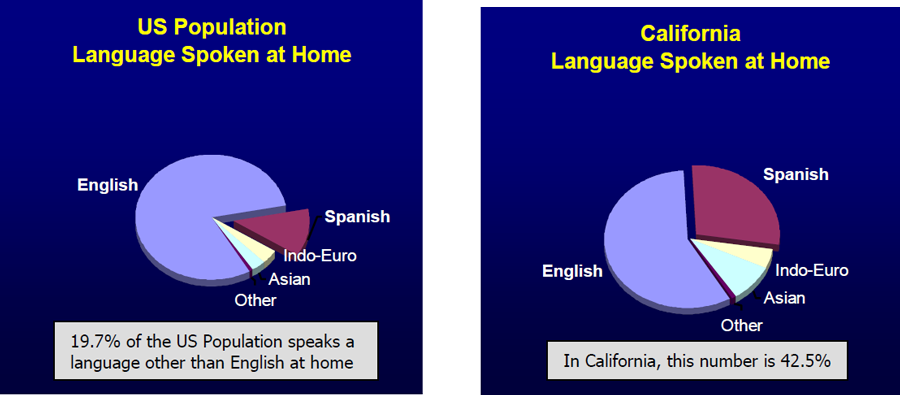Cultural And Linguistic Competency
Governor Arnold Schwarzenegger signed into law AB 1195 (eff. 7/1/06) requiring local CME providers, such as EM:RAP, to assist in enhancing the cultural and linguistic competency of California’s physicians (researchers and doctors without patient contact are exempt). This mandate follows the federal Civil Rights Act of 1964, Executive Order 13166 (2000) and the Dymally-Alatorre Bilingual Services Act (1973), all of which recognize, as confirmed by the US Census Bureau, that substantial numbers of patients possess limited English proficiency (LEP).

California Business & Professions Code §2190.1(c)(3) requires a review and explanation of the laws identified above so as to fulfill EM:RAP’s obligations pursuant to California law. Additional guidance is provided by the Institute for Medical Quality at http://www.imq.org.
Title VI of the Civil Rights Act of 1964 prohibits recipients of federal financial assistance from discriminating against or otherwise excluding individuals on the basis of race, color, or national origin in any of their activities. In 1974, the US Supreme Court recognized LEP individuals as potential victims of national origin discrimination. In all situations, federal agencies are required to assess the number or proportion of LEP individuals in the eligible service population, the frequency with which they come into contact with the program, the importance of the services, and the resources available to the recipient, including the mix of oral and written language services. Additional details may be found in the Department of Justice Policy Guidance Document: Enforcement of Title VI of the Civil Rights Act of 1964 http://www.usdoj.gov/crt/cor/pubs.htm.
Executive Order 13166, “Improving Access to Services for Persons with Limited English Proficiency,” signed by the President on August 11, 2000 http://www.usdoj.gov/crt/cor/13166.htm was the genesis of the Guidance Document mentioned above. The Executive Order requires all federal agencies, including those which provide federal financial assistance, to examine the services they provide, identify any need for services to LEP individuals, and develop and implement a system to provide those services so LEP persons can have meaningful access.
Dymally-Alatorre Bilingual Services Act (California Government Code §7290 et seq.) requires every California state agency which either provides information to, or has contact with, the public to provide bilingual interpreters as well as translated materials explaining those services whenever the local agency serves LEP members of a group whose numbers exceed 5% of the general population.
If you add staff to assist with LEP patients, confirm their translation skills, not just their language skills. A 2007 Northern California study from Sutter Health confirmed that being bilingual does not guarantee competence as a medical interpreter. http://www.pubmedcentral.nih.gov/articlerender.fcgi?artid=2078538.